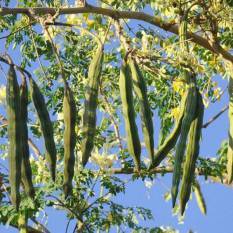PUNE, 11 May 2024: The term "superfood" has become a buzzword in the world of health and nutrition. While there's no single food with magical properties, certain ingredients boast a concentrated pack of vitamins, minerals, and antioxidants, potentially offering a range of health benefits.
In India, a land steeped in tradition and rich culinary heritage, several indigenous foods have earned the "superfood" title due to their long history of use in Ayurveda and their impressive nutritional profiles. Let's delve into the most popular superfoods in India, exploring their unique characteristics and potential health benefits.
Turmeric (Haldi): The Golden Warrior
Turmeric, a vibrant yellow spice with a slightly peppery flavor, reigns supreme as India's most popular superfood. Curcumin, the active compound in turmeric, is believed to possess potent anti-inflammatory and antioxidant properties. Studies suggest curcumin may play a role in managing various conditions like arthritis, heart disease, and even some forms of cancer. Turmeric is readily available in fresh or powdered form and is easily incorporated into curries, dals, and even beverages like golden milk.
Amla (Indian Gooseberry): The Vitamin C Powerhouse
Amla, a small, green fruit with a tart flavor, is a champion of Vitamin C. It boasts Vitamin C content exceeding that of oranges, making it a potent immune system booster. Amla is also rich in antioxidants and is believed to promote healthy hair, skin, and digestion. It can be consumed raw, pickled, or even juiced for a refreshing and healthy drink.
Ghee (Clarified Butter): The Ayurvedic Treasure
Ghee, a staple in Indian cuisine, is clarified butter made from cow's milk. The ghee-making process removes lactose and milk solids, resulting in a high smoke point fat that is ideal for cooking. Ghee is a rich source of conjugated linoleic acid (CLA), which may offer benefits like weight management and improved blood sugar control. However, it's important to consume ghee in moderation due to its high-fat content.
Moringa (Drumstick Tree): The Multipurpose Marvel
Moringa, also known as the drumstick tree, is a powerhouse of nutrients. Its leaves, pods, and even seeds are edible and boast an impressive profile of vitamins, minerals, and antioxidants. Moringa is believed to promote healthy blood sugar levels, reduce inflammation, and improve overall well-being. The leaves can be incorporated into curries or dals, while the drumsticks are often enjoyed cooked or pickled.
Ashwagandha (Indian Ginseng): The Adaptogenic Ally
Ashwagandha, an herb with small, yellow flowers, is revered in Ayurveda as an adaptogen. Adaptogens are believed to help the body adapt to stress. Ashwagandha is thought to promote relaxation, reduce anxiety, and improve sleep quality. It is available in powder form and can be consumed mixed with milk or water.
Fenugreek (Methi): The Bittersweet Powerhouse
Fenugreek, a small, yellow seed with a slightly bitter flavor, is another popular superfood in India. It's a good source of fiber and essential minerals like iron and magnesium. Fenugreek is believed to regulate blood sugar levels and may also aid digestion. The seeds can be sprouted and enjoyed raw in salads or cooked in curries and dals.
Tulsi (Holy Basil): The Sacred Superfood
Tulsi, or holy basil, is a revered herb in India with religious significance. Beyond its spiritual importance, tulsi boasts impressive medicinal properties. It is believed to possess antiviral and antibacterial properties and may help boost the immune system. Tulsi leaves can be brewed into a tea or added to soups and curries for a unique flavor and potential health benefits.
Flaxseeds (Alsi): The Omega-3 Champion
Flaxseeds, tiny brown seeds with a nutty flavor, are a rich source of omega-3 fatty acids, essential for heart health. They are also a good source of fiber and may aid digestion. Flaxseeds can be ground into a powder and added to smoothies, yogurt, or baked goods for a nutritional boost.
Sprouts (Moong Dal): The Easy Powerhouse
Sprouts, especially those derived from moong dal (green gram), are a simple yet powerful superfood option. The sprouting process enhances the nutritional profile of the legume, making it easier to digest and absorb nutrients. Sprouts are a good source of protein, fiber, vitamins, and minerals, making them a perfect addition to salads, sandwiches, or curries.
Coconut: The Versatile Superfood
Coconut is consumed in various ways in India. Coconut water is fat-free, has high ascorbic acid, proteins, and vitamin B1. Coconut oil, used for ages in Indian households, especially in Kerala, is now turning out to be everyone’s favorite. It has amazing benefits for weight loss.























